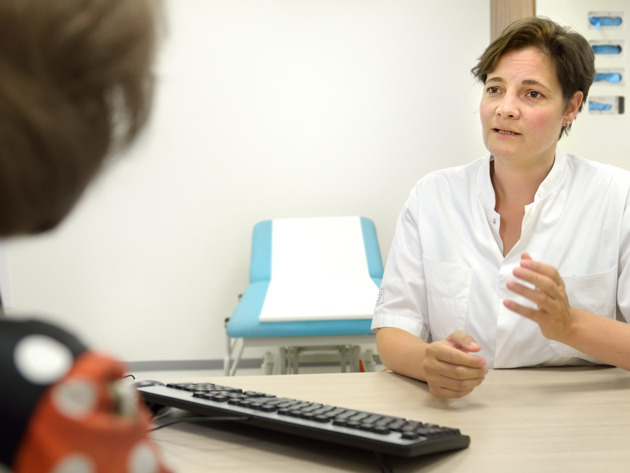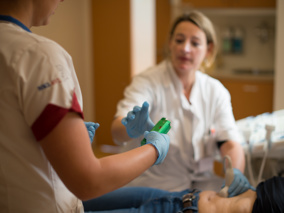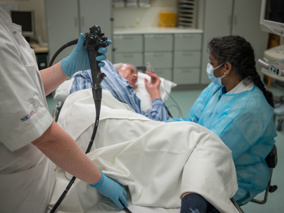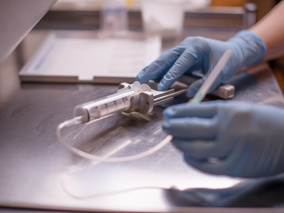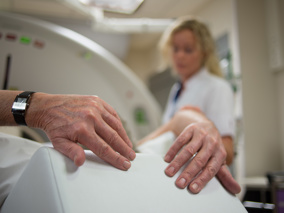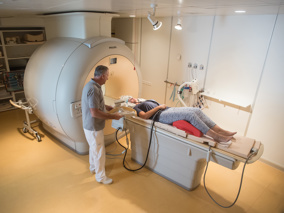Colon cancer
Colon cancer is cancer in the intestines. Usually colon cancer arises from a polyp in the intestinal wall. A polyp is a thickening or outgrowth in the intestine. This is benign at first, but it can become malignant later.
Colon cancer is often in the colon. This is called colorectal cancer or colon cancer. But many people call it colon cancer.
Colon cancer is one of the most common types of cancer. Every year, 12,000 people in the Netherlands are diagnosed with colon cancer.
On this page you can read more about the symptoms, examinations and treatment for colon cancer.

AVL Colon Cancer Center
More information about colon cancer
Causes of colon cancer
There is no single cause of colon cancer. However, there are factors that increase the chance. Colon cancer mainly occurs in people over the age of 50. But younger people can also get it.
Lifestyle plays a role. Unhealthy food and little exercise also increase the risk of colon cancer.
Other risk factors include:
- Overweight
- Drinking a lot of alcohol
- Eat red or processed meat often
Symptoms of colon cancer
Symptoms of colon cancer may include:
- Blood in the stool
- A (sudden) change in bowel pattern and/or abdominal pain
- Losing weight for no reason
- Fatigue
These symptoms do not immediately mean that you have colon cancer. But it is good to have this examined by a doctor.
Types of colon cancer
Colon cancer almost always arises from a polyp in the intestinal wall. A polyp is a benign thickening or outgrowth of the intestine, which can become malignant.
Cancer can occur in several places in the intestine. About 70% occurs in the last parts of the large intestine, of which a third in the very last part: the rectum.
Colon cancer is also called colorectal cancer. This is the collective name for tumors in the large intestine (colon) and rectum.
Colon cancer is one of the most common types of cancer. The diagnosis of colon cancer is made 14,000 times a year (IKNL). 5% of these people have a hereditary form of colon cancer.
The most common form of hereditary colon cancer is Lynch Syndrome. Other common forms include familial adenomatous polyposis (FAP), MUTYH-related polyposis (MAP), and other rarer polyp syndromes. Read more about Lynch Syndrome.
Waiting
We want to inform you as well as possible about the waiting time per condition. We do this based on a prognosis of the current waiting list. The waiting time can vary from patient to patient for various reasons. Your attending physician will give you more information during your outpatient consultation.
-
7 days
First appointment
This is approximately how long it will take until you have your first appointment
-
4 days
Rapid diagnostics
This is approximately how long it will take before you can start rapid diagnostics at the NKI
-
8 days
Second opinion
This is approximately how long it will take before you come in for a second opinion at the NKI
 nl
nl
